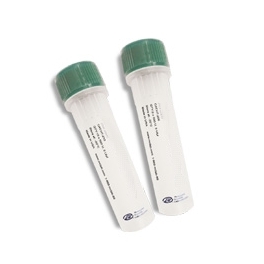 View full size
View full size
- Analýza nukleových kyselin
- Analýza proteinů
- Biochemické reagencie
- Enzymy
- Editování genů
- Klonování
- Klinická diagnostika
- STR kity - identifikace osob, určení otcovství a příbuznosti
- Laboratorní příslušenství
- Software
- A&A Biotechnology
- AdvancedSeq
- BioDynami
- Plant Cell Technology
Novinky
-
RANK 2026
Navštivte nás na jubilejním 20. ročníku odborné konference RANK 2026, která se uskuteční ve dnech 18. a 19. března v Pardubicích v ABC klubu. Konferenci pořádá Česká společnost klinické biochemie při ...
Více -
XXXV. Izakovičov memoriál 2025
S potěšením oznamujeme, že se zúčastníme prestižní konference XXXV. Izakovičov memoriál 2025, která se bude konat 8.–10. října 2025 v Grandhotelu Praha v Tatranské Lomnici na Slovensku. Izakovičov me...
Více -
1.československý kongres lékařské genetiky 2025
Na jaře se zúčastníme 1. československého kongresu lékařské genetiky, který se bude konat 2.-4. dubna 2025 v Kulturním a kongresovém centru Elektra v lázeňském městě Luhačovice. Tento jedinečný kong...
Více
 View full size
View full size
Recognition site: G(CH3)A^TC
Source:
An E. coli strain that carries the DpnI gene from Diplococcus pneumonia
Supplied With:
10x DpnI Buffer
10x DpnI Buffer:
500 mM Potassium Acetate
200 mM Tris-acetate
100 mM Magnesium Acetate
1 mg/ml BSA
pH 7.9 @ 25°C
Supplied In:
10 mM Tris-HCl, 300 mM NaCl, 1 mM DTT, 0.1 mM EDTA, 500 μg/ml BSA, 50% Glycerol
Recommended Storage Condition: -20°C
Typical ligation/recut assay results:
More than 70% of the pBR322 DNA fragments can be ligated and more than 95% of these can be re-cut after 50-fold over-digestion with DpnI.
Unit Definition:
One unit is defined as the amount of enzyme required to digest 1 µg of pBR322 DNA (dam methylated) in 1 hour at 37°C in a total reaction volume of 50 µl.
Comments:
Resistant to heat inactivation (20 minutes, 85°C). DpnI requires the presence of N6-methyladenine within the recognition sequence to cleave DNA. DNA purified from a dam+ strain will be a substrate for DpnI. DpnI will only cleave fully-adenomethylated dam sites. Hemi-adenomethylated dam sites DpnI cleaves 60X more slowly.
Košík
Platební brána



